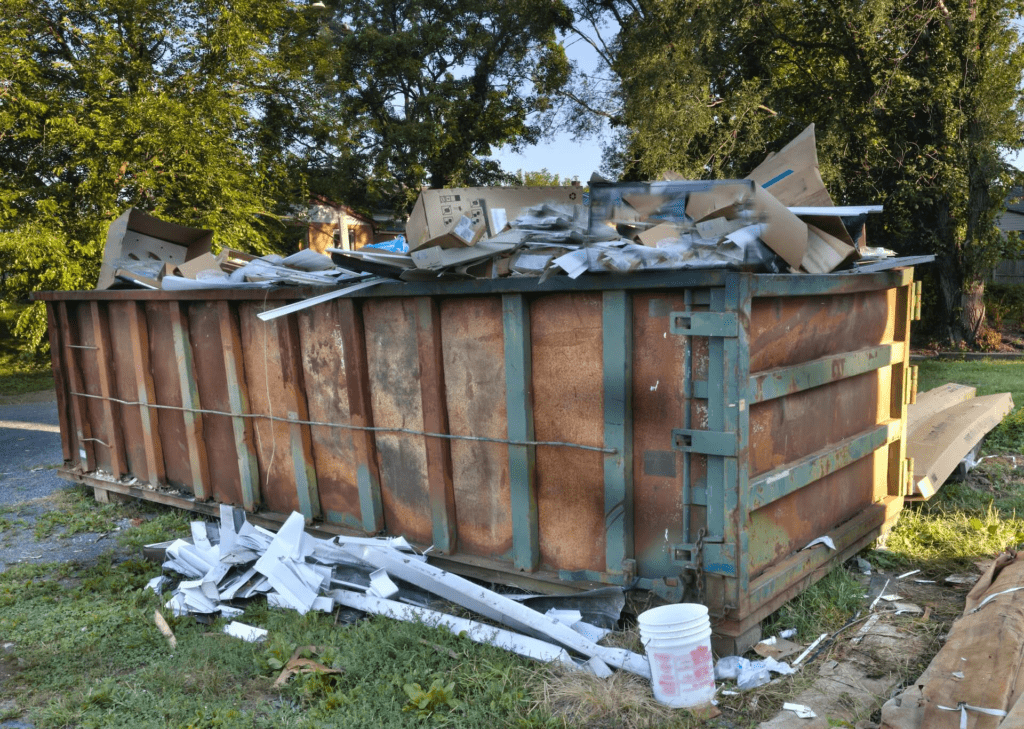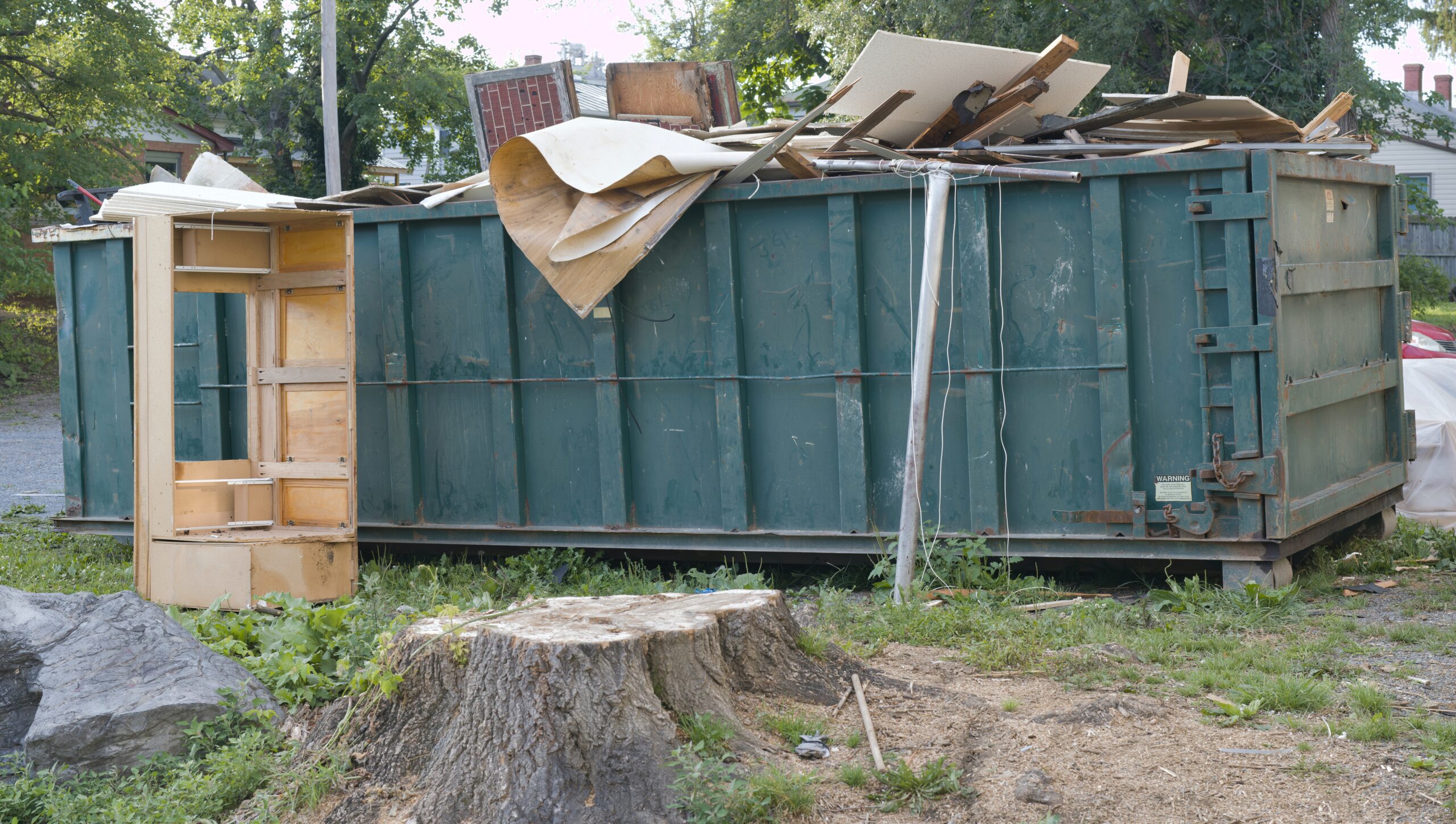Overview:
Best Places to Dumpster Dive: Uncovering Hidden Treasures Dumpster diving has evolved from a fringe activity to a resourceful and eco-conscious practice, offering a treasure trove of discarded goods. The quest for the best places to dumpster dive spans various locations, from retail stores and supermarkets to residential areas, electronic outlets, and food establishments. Timing is key, with mid-week often cited as the optimal period for discovering fresh items. The allure of this activity lies in the possibility of finding anything from food nearing expiration to functional electronics, clothing, and even furniture. While legal considerations and respect for private property are crucial, dumpster diving presents an opportunity for those interested in sustainability, frugality, or adventure.

Introduction
Looking for a unique and unconventional way to find hidden treasures and reduce waste? Dumpster diving has become an increasingly popular activity for those seeking free items, from food to electronics, in the discards of others. The thrill of discovering valuable or usable items discarded by stores or individuals has led to the exploration of various locations, seeking the best spots to dive into dumpsters. Whether you’re an environmental enthusiast, a frugal individual, or an adventurer seeking the thrill of the hunt, knowing the best places to dumpster dive can be a game-changer. Let’s delve into the realms of the best spots and strategies for a successful diving experience.
Best Day to Dumpster Dive
Timing is crucial when it comes to successful dumpster diving. Many experienced divers suggest that mid-week tends to be ideal. Why? Typically, stores discard their goods at the beginning of the week, making midweek perfect timing to find fresh and untouched items. However, it’s essential to avoid weekends due to increased foot traffic and heightened security, as well as the potential for frequent emptying of dumpsters.
Best Dumpster Diving Spots
Finding the best spots to dive can vary by location. Retail stores, supermarkets, electronic shops, and residential areas are among the most common places to explore. Retailers discard a wide array of items ranging from packaged food, clothing, and even electronics. Supermarkets often dispose of food nearing its expiration date, providing an opportunity for free groceries. Electronic stores are a goldmine for tech enthusiasts, as they often discard outdated but functional gadgets.
Mention Some Points:
1. Retail Stores and Shopping Centers: Major retail chains, department stores, and shopping malls are abundant sources of discarded items. Clothing, accessories, and sometimes unopened goods can be found.
2. Supermarkets and Grocery Stores: These spots often discard food close to its expiration date. Fresh produce, packaged goods, and sometimes unopened items can be salvaged.
3. Electronic Stores and Tech Outlets: Ideal for tech enthusiasts, these places frequently dispose of slightly damaged or outdated but functional gadgets such as smartphones, laptops, and other electronic devices.
4. Furniture and Home Goods Outlets: Residential areas, particularly near apartment complexes and housing estates, can be goldmines for discarded furniture, appliances, and home décor.
5. University and College Campuses: When students move in and out of dorms or apartments, the end of semesters can yield a wealth of discarded items—books, furniture, electronics, and more.
6. Restaurants and Bakeries: Food establishments often discard surplus or slightly imperfect yet entirely edible food items. Bins behind these locations might yield free meals or baking ingredients.
7. Construction Sites or Renovation Areas: Waste from construction or renovation projects might include usable materials or tools that have been discarded but are still in good condition.
8. Apartment Complex Dumpsters: Residents often discard perfectly functional items like furniture, small appliances, and electronics when moving out.

9. Office Buildings or Business Parks: Dumpsters at these locations may yield discarded office supplies, electronics, and furniture no longer needed by the businesses.
10. Garage Sales and Flea Markets: Sometimes vendors discard unsold or slightly damaged items at the end of these events, providing opportunities to find treasures among the discards.
Best Place to Dumpster Dive Near Me
The best spots near you largely depend on your geographical location. To discover these spots, consider exploring local shopping districts, university areas, or even industrial zones. Keep in mind the legality of dumpster diving in your area, as laws can vary. Some places may have specific regulations, while others might have completely banned this practice.
Best Places to Dumpster Dive for Electronics
If you’re specifically hunting for electronic gadgets, targeting electronic stores or tech outlets is your best bet. These places often discard slightly damaged or outdated but functioning electronics, from computers to smartphones, creating a playground for tech-savvy divers.
Best Stores to Dumpster Dive Near Me
Best Places to Dumpster Dive: Uncovering Hidden Treasures Targeting large retail chains or local businesses can be fruitful for divers. Popular chain stores tend to have a higher volume of discards, increasing the chances of finding various items. Local businesses, on the other hand, might offer more unique and unexpected treasures.
Good Places to Dumpster Dive Near Me
Apart from commercial areas, residential areas can also offer potential diving spots. People often discard usable items, furniture, or appliances, providing an opportunity for valuable finds. Universities and colleges at the end of semesters can be another promising location as students discard items they no longer need.
Some Places Mention:
1. Local Retail Stores: Explore nearby retail chains or smaller stores, as they often discard various items, including clothing, accessories, and sometimes unopened goods.
2. Supermarkets and Grocery Stores: Your local food market can be a treasure trove for food nearing expiration or slightly damaged but still edible items.

3. Electronic Stores and Tech Outlets: Nearby electronic shops may discard slightly damaged or outdated but functional electronics, such as smartphones, computers, or accessories.
4. University Areas: Check dumpsters near colleges or universities, especially during the end of semesters, for items students discard while moving out.
5. Residential Areas: Apartment complexes or housing estates in your vicinity could be a source of discarded furniture, appliances, and other household items.
6. Local Restaurants and Bakeries: Explore bins behind local food establishments, where they might discard surplus or slightly imperfect yet edible food items.
7. Industrial Zones or Business Parks: Check dumpsters in these areas, where businesses often dispose of office supplies, electronics, and other usable items.
8. Community Centers or Recreational Facilities: Dumpster diving near these areas might yield discarded sports equipment, books, or other usable goods.
9. Local Parks or Outdoor Areas: Trash bins in public recreational spaces might sometimes contain discarded but still useful items, like picnic supplies or sports gear.
10. Local Donation Centers or Charities: Some donation centers might discard items that are slightly damaged or not fit for sale, offering potential finds for divers looking for usable items.
Good Places to Go Dumpster Diving
Best Places to Dumpster Dive: Uncovering Hidden Treasures Exploring the alleys and bins behind restaurants or bakeries can yield excellent finds. Food establishments regularly discard surplus or slightly imperfect yet edible items, providing a chance for free meals or ingredients.
Some Points:
1. Supermarkets and Grocery Stores: These locations often discard food close to its expiration date. Perfectly edible items, packaged goods, and sometimes even fresh produce can be salvaged.
2. Electronic Stores and Tech Outlets: Great for tech enthusiasts, these places frequently dispose of slightly damaged or outdated but functional gadgets like smartphones, laptops, and other electronic devices.
3. Furniture and Home Goods Outlets: Residential areas, including areas near apartment complexes and housing estates, can be goldmines for discarded furniture, appliances, and home décor.
4. Universities and Colleges: As students move in and out of dorms or apartments, the end of semesters can yield a wealth of discarded items—books, furniture, electronics, and more.
5. Restaurants and Bakeries: Food establishments often throw away surplus or slightly imperfect yet entirely edible food items. Bins behind these locations might yield free meals or baking ingredients.
6. Retail Chains and Local Businesses: Both large retail chains and smaller, local businesses discard various items, including clothing, accessories, electronics, and sometimes unopened goods.
7. Construction Sites or Renovation Areas: Waste from construction or renovation projects might include usable materials or tools that have been discarded but are still in good condition.
8. Apartment Complex Dumpsters: Residents often discard perfectly functional items like furniture, small appliances, and electronics when moving out.
9. Office Buildings or Business Parks: Dumpsters at these locations may yield discarded office supplies, electronics, and furniture no longer needed by the businesses.
10. Garage Sales and Flea Markets: Sometimes vendors discard unsold or slightly damaged items at the end of these events, providing opportunities to find treasures among the discards.
Conclusion
Best Places to Dumpster Dive: Uncovering Hidden Treasures In conclusion, dumpster diving can be a rewarding and environmentally friendly activity for those willing to explore and re purpose discarded items. The thrill of finding treasures in what others discard is an adventure in itself. Knowing the best places, the ideal timing, and staying updated on local laws can enhance the experience.

So, whether you’re seeking electronics, food, or other items, dumpster diving opens a world of possibilities. Dive into the best places to dumpster dive and turn discarded items into your newfound treasures. Best places to dumpster dive await those daring enough to seek them out. Transitioning between locations, ensuring safety measures, and being respectful while diving is key to a successful and enjoyable experience.
Read More: The 8 Best Places to Take Pictures in Tokyo:
FAQs:
Answer: The legality of dumpster diving varies by location. Some areas may have specific laws or regulations regarding rummaging through waste, while others might have no explicit laws but could restrict diving on private property. It’s advisable to research local ordinances or seek legal advice to understand the legality in your area.
Answer: While dumpster diving can be a rewarding activity, it comes with certain risks. Ensure personal safety by wearing gloves, being cautious of sharp objects, and avoiding potentially hazardous items. Additionally, be mindful of the cleanliness and potential health risks when handling discarded food.
Answer: Items like clothing, electronics, furniture, non-perishable foods, and unopened goods are commonly found while dumpster diving. It’s essential to inspect items for safety and usability. Avoid taking perishable food or items that could pose health risks.
Answer: Popular spots for dumpster diving include retail stores, supermarkets, electronic shops, and residential areas.
Answer: Always respect private property and local laws. Avoid trespassing or diving in areas where it’s explicitly prohibited.

